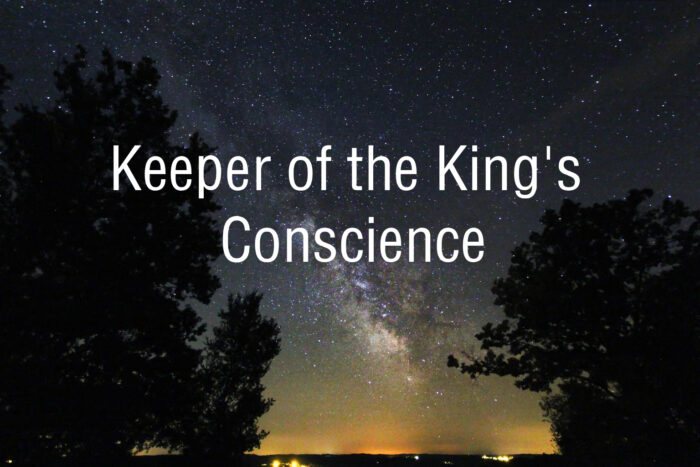
Once upon a time, there were two courts on this planet: the court of law and the court of equity. As the years went by, the line between the two blurred. For good or evil, the court of equity which embraces flexible discretion, gradually evolved into the court of law (here we mean common law), which respects precedent and certainty. [1]
Imagine your state parliament (perhaps a little authoritarian) has just introduced a new law, the Fasting Act 2023. It stipulates that everyone in your state must fast for two days per week. No matter how ridiculous it may seem, the law has just passed. It does serve a good purpose as recent scientific findings support the positive effects of fasting. This law aims to safeguard citizens’ health state-wide.
Now, consider this scenario: your wife is pregnant. She may not be suitable for such a fasting routine and inadvertently breaks the rule. Naturally, the court of law found her guilty. However, the court of equity might render a different judgment.
What is equity? We may turn to Aristotle for his original thought.
Aristotle believes that “equity is the sort of justice which goes beyond the written law.” [2]
Aristotle offers an intriguing perspective on legal justice. According to him, legal justice belongs solely to legislators, while judges dispense judicial justice. [3] In Aristotle’s view, there may be discrepancies between legislation and real cases. It’s often due to the wording of the legislation, which may not cover every circumstance, whether intentionally or unintentionally. In such cases, its role flexibly fills the gap as a corrective measure. [4] In our example, the term ‘’everyone’’ in the Fasting Act 2023, fails to account for exceptions. Namely, your wife’s situation.
The Heart of Equity
The core concept is the notion of ‘’conscience’’. [5]
If we trace the history of English law, we may encounter a phrase known as ‘’Keeper of the King’s Conscience’’. This traces back to the power of the church. Similar to how European monks were the ancestors of Chancellors, many medieval bishops also assumed the roles of Chancellors. [6] Therefore, the Court of Equity has another name: Court of Chancery.
The evolving role of conscience in equity reflects how the development of common law influences the significance of religion within judicial power.
I question the positive impact of systemizing of Equity and conscience, while it might not constitute a ‘’self-sufficient system’’ compared to Common Law. [7] How do we ‘’systemize’’ our conscience? Therefore, “the role of conscience in Equity necessarily reduced” when the common law assimilated Equity. [8]
As legal precedent increasingly shapes Equity, the court reluctantly makes innovative rulings. [9] On one hand, the court of law (common law) may exhibit more objectivity, as it bases judgments on evidence, and strictly adheres to precedent. On the other hand, critics have criticized the court of equity for being ‘’subjective’’. A typical critique comes from John Selden:“Equity is a roguish thing: for law we have a measure, know what to trust to; equity is according to the conscience of him that is Chancellor, and as that is larger or narrower, so is equity. “[10]
However, precisely because every case is unique, Equity’s flexibility embedded in individual Chancellors, can be advantageous for adjustment.
The key is that conscience is an individual matter and full of spiritual character.
The Spiritual Character
The following paragraph impressed me particularly, so I’d like to quote it here in full: “Conscience was imported into the Courts of Chancery as a primary basis of intervention by the medieval Chancellors…In a very literal sense, these Chancellors were directly concerned with spiritual matters – conscience was the means by which conduct was judged in order to avoid peril to the souls of the parties through sin. This distinctly ecclesiastical sense of conscience was reformative in function, and entailed unrestrained discretion in the decision of individual cases…”[11]
The individualization of conscience does not necessarily lead to subjectivization. [12] A medieval Chancellor’s conscience wouldn’t be any different from a modern judge’s conscience – if “everyone is a ‘Keeper of God’s Conscience’ – because ‘God has given to every particular man a proper Conscience to be as a God unto him.’ “[13]
The Religious Significance
However, this argument is based on whether we still value the religious significance of conscience, whether we accept the fact that ‘religion is the foundation of law and Equity’, [14] or whether we acknowledge that divine law enlightens the conscience in equity. [15]
In other words, do we accept that the Kingdom of Mankind mimics the Kingdom of God? Most likely not. The medieval Chancellors have faded into history, along with the spiritual element of the law.
The reality is, the renaissance of conscience in equity as a judicial power depends on how far Equity departs from religious significance and fully embraces “politically acceptable common law’’. [16]
(END)
[1] Alison Dunn, ‘Equity Is Dead. Long Live Equity!’ (1999) 62(1) The Modern Law Review 140, 141.
[2] Aristotle, Rhetoric, supra note 1, at 2188 [1374al8-1374b23]; Allan Beever, ‘Aristotle on Equity, Law and Justice’ (2004) 10(1) Legal Theory 33, 41.
[3] Allan Beever, ‘Aristotle on Equity, Law and Justice’ (2004) 10(1) Legal Theory 33, 41.
[4] Aristotle, Ethics, supra note 1, at 199 [1137b20-24]; Allan Beever, ‘Aristotle on Equity, Law and Justice’ (2004) 10(1) Legal Theory 33, 42.
[5] Rohan Havelock, ‘The evolution of equitable ‘conscience’ (2014) 8(2) Journal of Equity 128,128.
[6] Rohan Havelock, ‘The evolution of equitable ‘conscience’ (2014) 8(2) Journal of Equity 128,132.
[8] Ibid.
[9] Ibid, 152.
[10] Ibid, 151.
[11] Ibid, 160.
[12] Ibid, 147.
[13] Ibid.
[14] Ibid, 144.
[15] Agnew Sinead, ‘The meaning and significance of conscience in private law’ (2018) 77(3) Cambridge Law Journal 479, 483.
[16] Rohan Havelock, ‘The evolution of equitable ‘conscience’ (2014) 8(2) Journal of Equity 128,156.
